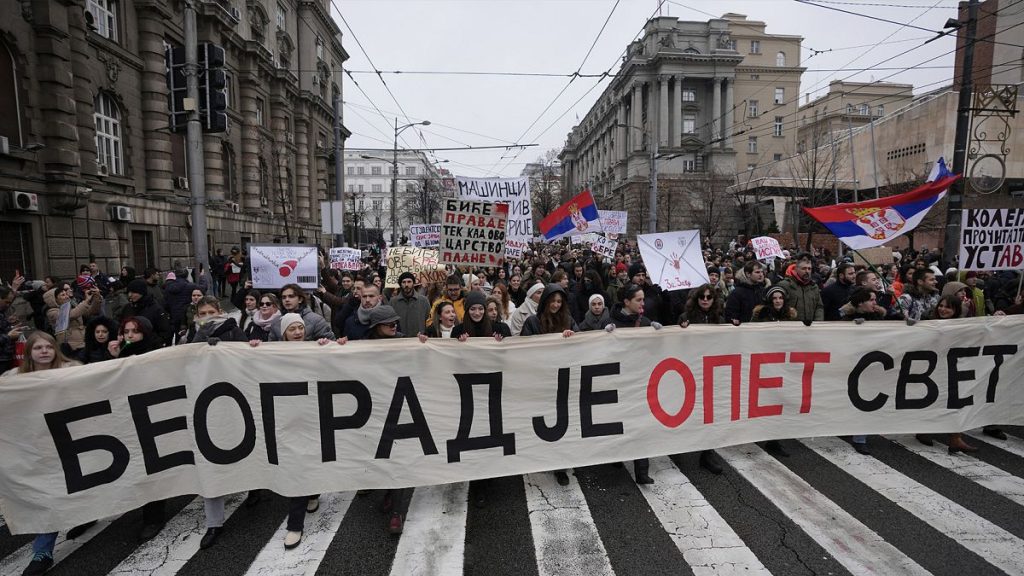The collapse of a train station awning in Novi Sad, Serbia, on November 1, 2023, tragically claimed the lives of 15 individuals, sparking widespread outrage and protests across the nation. The incident ignited a firestorm of accusations against the government, with many pointing fingers at rampant corruption and subpar construction practices as the primary culprits behind the devastating collapse. The tragedy served as a grim reminder of the potential consequences of neglecting safety standards and prioritizing profit over human lives, further fueling a growing wave of discontent with the ruling regime.
University students across Serbia took center stage in the aftermath of the tragedy, launching a series of strikes and demonstrations to demand accountability and justice for the victims. Over a thousand students converged outside the chief prosecutor’s office in Belgrade, symbolically delivering letters urging the prosecution to conduct a thorough and impartial investigation, free from political interference or corruption. The students’ actions reflected a broader societal concern about the perceived erosion of democratic values and the pervasive influence of political and economic interests in critical public projects.
The Novi Sad train station renovation project, part of a larger infrastructure initiative involving Chinese state-owned companies, has come under intense scrutiny. The involvement of foreign entities further complicates the investigation, raising questions about potential conflicts of interest and the government’s oversight capacity. The arrests of 13 individuals, including a government minister who was subsequently released, have done little to assuage public skepticism about the investigation’s integrity. The minister’s release, in particular, fueled suspicions of political maneuvering and a lack of genuine commitment to holding those responsible accountable.
The student-led protests gained significant momentum, attracting support from various sectors of Serbian society, including professors, farmers, actors, and ordinary citizens. A massive demonstration in Belgrade, spearheaded by the students, drew tens of thousands of participants, showcasing the widespread dissatisfaction with President Aleksandar Vučić’s leadership. The protests transcended the immediate issue of the awning collapse, evolving into a broader expression of discontent against Vučić’s perceived authoritarian tendencies and his administration’s handling of critical national issues. The red handprints displayed on protest banners served as a powerful symbol, accusing the authorities of having “blood on their hands.”
President Vučić’s response to the burgeoning protests centered on economic incentives, including the announcement of “favorable” loan programs for young people seeking to purchase apartments. Critics viewed this move as an attempt to appease the protesting students and deflect attention from the core issues of corruption and accountability. The government’s approach seemed to prioritize short-term solutions rather than addressing the systemic problems that led to the tragedy and the subsequent public outcry.
The Novi Sad train station collapse and the ensuing protests underscore the deep-seated tensions within Serbian society. President Vučić, while outwardly pursuing European Union membership, faces accusations of undermining democratic freedoms and maintaining close ties with Russia and China. This balancing act between Western integration and alliances with authoritarian regimes further complicates Serbia’s political landscape and fuels public distrust. The student-led movement, empowered by widespread societal support, continues to pressure the government for meaningful reforms and a genuine commitment to transparency and accountability. The tragedy has become a symbol of the urgent need for change and a catalyst for a broader conversation about the future direction of the country.














